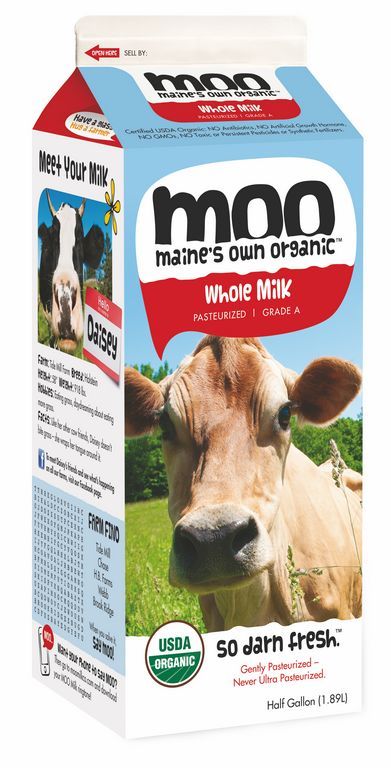MOO Milk's CEO explains painful decision to fold
 Photo / Courtesy MOO Milk
Photo / Courtesy MOO Milk
Bill Eldridge, CEO of Maine’s Own Organic Milk, more commonly known as MOO Milk, said the decision to discontinue milk production at Smiling Hill Farm in Westbrook was immensely difficult and was only made after the company had determined it could not build a new facility quickly enough to guarantee a steady supply of its product over the next 18 months.
“The irony is that only as recently as a couple of weeks ago we had secured most of the funding we needed” to build a new facility in central Maine, Eldridge told Mainebiz in a phone conversation this morning. “We ended up changing course almost 180 degrees.”
Eldridge said the pivot was based on the assessment that there was a strong likelihood of a “catastrophic failure” of antiquated equipment used by its processor, Smiling Hill Farm in Westbrook, before the new facility could be built and come online. The processing equipment, which previously had been decommissioned by Oakhurst Dairy and donated to MOO Milk, suffered frequent breakdowns and was deemed not capable of meeting the current and future requirements of MOO Milk, leading both companies to terminate their agreement.
Eldridge said the last MOO Milk was processed on Wednesday and once sold will no longer be available in the marketplace.
“People have been very supportive,” Eldridge said, noting that a key element of the decision to stop production was the fact that Stonyfield’s yogurt facility in Londonderry, New Hampshire, had agreed to temporarily accept all of the raw organic milk produced by 12 Maine organic dairy farms that had been supplying MOO Milk. The company is assisting its member farmers in arranging long-term contracts for their milk supply with Stonyfield, Organic Valley, Oakhurst Dairy or others.
A phone call to Warren Knight, CEO of Smiling Hill Farm, had not been returned by late Friday morning, but a press release announcing MOO Milk’s decision said it would not affect in any way the production of Smiling Hill Milk, which is packaged in glass bottles using different and separate equipment.
Eldridge said the company is not filing for bankruptcy and has sufficient cash on hand to pay off all of its current obligations. This includes payment to all farmers, vendors, and employees. MOO expects to continue operating with limited activity while it unwinds its retail commitments and transitions its bulk milk supply to a new home. The company employs five people in Maine, one salesperson in Massachusetts and rents a small office in Falmouth.
The company’s dairy farmers learned Thursday that the company would no longer be producing MOO Milk, Eldridge said. “Even the most vocal ones were almost silent.”
In a letter accompanying the press release, Eldridge said MOO Milk’s management remains committed to helping organic dairy farms find viable markets for their milk.
“We also want to make it clear that while MOO Milk will no longer be found on store shelves, the leadership at MOO is entirely committed to honoring the company’s mission of saving small Maine dairy farms and to finding a long-term home for the milk produced each week by our 12 farmers,” Eldridge wrote in his letter. “It is paramount that we not let them down and that we find a long-term market for their milk at the prices they have come to expect and require. For up to several months, MOO will be selling its raw organic milk to Stonyfield’s Londonderry, New Hampshire, yogurt facility. We are having discussions with Stonyfield, Oakhurst, Organic Valley and other bulk customers as we seek to secure a long-term contract for each of the farmers.”
MOO Milk was established in 2009 when a collection of Maine organic dairies lost their contract with Hood and, faced with extinction, decided to form their own low-profit limited liability company.
In 2012, a documentary film — “Betting the Farm” — profiled three MOO farms during the company’s turbulent first years and created a buzz around the nation. With no advertising budget, MOO relied on word of mouth and the growing commitment of consumers and retailers.
In 2013, MOO was recognized with a Whole Foods Local Supplier of the Year Award and the Cornucopia Institute’s 5-Cow rating, the highest quality ranking for organic milk.
“I’ve been astounded how supportive everyone has been all along,” Eldridge told Mainebiz today.










Comments